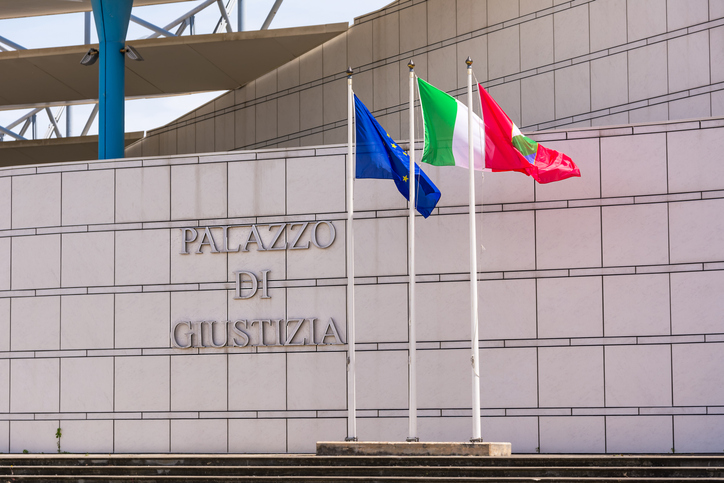x
Our website uses cookies. By continuing to use the site, you agree to our use of these cookies. To learn more about how we use the cookies and how you can manage them, please see our cookies policy.
Being arrested in a foreign country can be a disorienting and stressful experience. Italy, with its distinct judicial system, poses a number of challenges for those unfamiliar with its laws and processes. The Italian judicial system is inquisitorial, where the judge plays an active part in investigating the facts of the case, compared to England and Wales and other countries in the European Union, where the judge is unbiased. These differing regulations and laws can cause problems and heighten anxiety for foreign nationals, particularly those unfamiliar with the Italian legal system and their rights throughout the procedure.
This guide will explore the rights of the accused after being arrested in Italy, and the benefits of instructing cross-border criminal defence lawyers (Avvocato).
Click on the links below to each section:
Discover the procedure for being arrested in Italy and what occurs during detainment.
Browse the various rights of the arrested and accused in Italy.
Differences between being arrested and being in custody, as well as your rights during these stages.
The benefits of instructing multilingual and multijurisdictional criminal defence lawyers (Avvocato) and Giambrone & Partners’ Italian services.
Read the most common queries on Italian criminal law.
Italy has strict laws that may differ significantly from other countries, particularly England and Wales, especially regarding antisocial behaviour, drug possession, and alcohol consumption. There is more than one type of law enforcement agency in Italy. If there is an issue, they will ask you questions and potentially may arrest you. The law enforcement agencies are:
If a plainclothes officer approaches you, you have the right to request their identification. Officers are required to show an official identification card detailing their rank and department. If they fail to do so, you are not obliged to follow their instructions. However, if you are approached by a uniformed officer or one who has identified themselves properly, you are legally required to provide your identification.

It is strongly recommended that you comply with the arresting officer. Once you are arrested, the officer must inform the public prosecutor and can detain you for up to 24 hours for initial investigations.
Under Italian legislation, arrested individuals must be provided with a letter of rights in a language they understand. This document outlines your fundamental rights during the legal process, which include:
As soon as you are arrested, you have the right to consult with your lawyer immediately, however, the court can delay the conversation for up to five days due to caution – in accordance with a request from the public prosecutor. Once you speak to your lawyer, they will ensure that all your rights are being upheld and advise you on the next steps.
Giambrone & Partners has an experienced team of Italian English speaking criminal defence lawyers who assist foreign nationals after they are arrested in Italy. With Italian and English-speaking lawyers (Avvocato), our criminal defence lawyers will help protect your interests, advise and assist you during the course of the criminal proceedings.
If you require further information on our cross-border criminal defence services, contact Giambrone & Partners today to request a callback.
Custody in Italy is distinct from an arrest. An arrest is typically tied to an offence that has just been committed or is actively being committed (in flagrante delicto). Custody, however, is often imposed when there is a risk of flight or suspicion of a serious crime.
The European Committee for the Prevention of Torture played a pivotal role in adopting Italy's 2007 Letter of Rights, which guarantees humane treatment during custody. While in custody, you are entitled to access essential personal hygiene facilities, receive meals if detained for over six hours, and be held in a clean cell with the necessities (bed, blanket, and bedsheet).

You will receive a receipt in exchange for your personal belongings taken at the time of detention, which will be returned upon release. The conditions of your detention and any restrictions imposed upon you are determined by a judge in chambers. Neither you nor your lawyer will typically be present at this stage. However, you can appeal the conditions at the Tribunal of Freedom (Tribunale della Libertà) within ten days. The Tribunal will review the validity of your detention and imposed conditions.
If you are arrested in Italy, you have the right to consult with a lawyer of your choice who will act in your best interests. If you do not appoint a lawyer, one will be assigned to you from a list maintained by the local bar council. However, the appointed lawyer may not always have experience with cross-border cases nor an adequate level of English which can be crucial for British nationals.
When selecting a lawyer, it is imperative to consider their expertise in cross-border legal matters, their track record in criminal defence, and their ability to communicate fluently in English or your preferred language. A skilled lawyer will ensure that your rights are upheld and guide you through the complexities of the Italian judicial system.
Giambrone & Partners specialises in cross-border matters and offers multi-lingual and multi-jurisdictional services to represent foreign nationals in Italy. We understand that being accused or arrested for a crime in a foreign country can be daunting, especially if you do not understand or speak Italian. As Italian law and legal proceedings differ from those in England & Wales, hiring experienced, cross-border lawyers, like from Giambrone & Partners, is extremely beneficial and will help simplify the procedure.
Contact Giambrone & Partners’ criminal defence lawyers for more guidance.
Extradition from Italy is governed by European and international treaties, including European arrest warrant cases. If you are a British national, England and Wales and Italy are party to an extradition agreement allowing the transfer of individuals wanted for prosecution or to serve a sentence. However, extradition is a complex legal process requiring judicial review, and the final decision rests with the Italian courts.
For more information, read our expert guide to extradition after being arrested in Italy here.